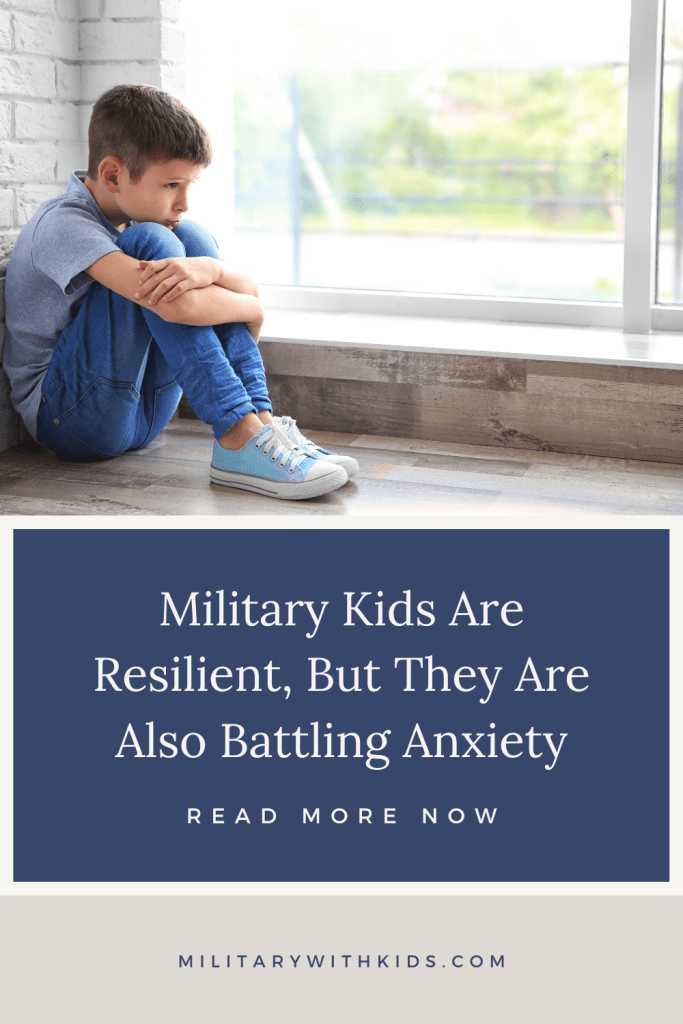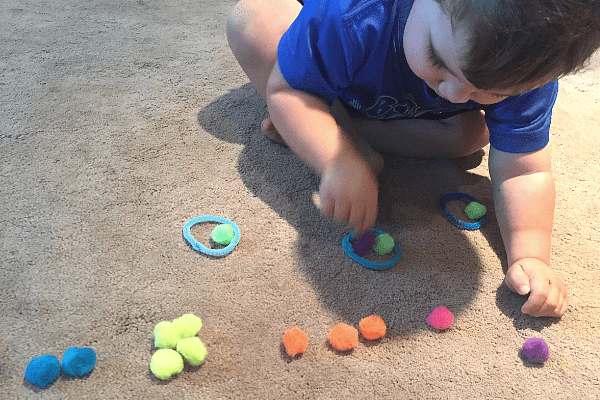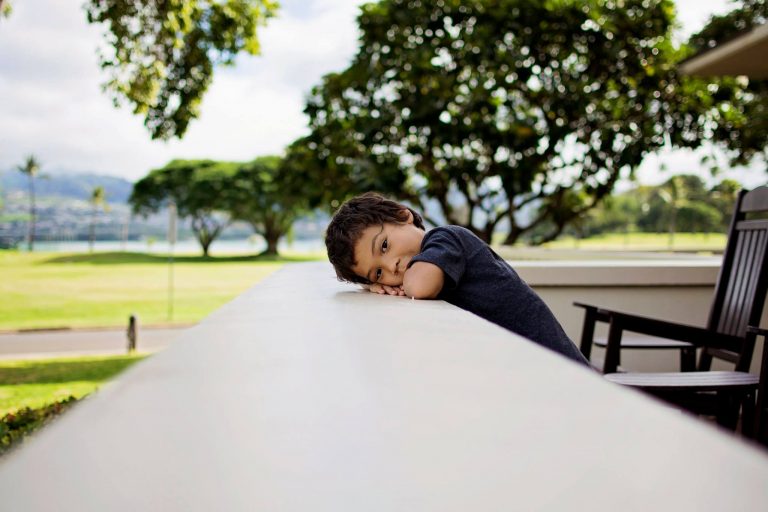Military Kids Are Resilient, But They Are Also Battling Anxiety

When someone is describing a military child, one of the key descriptors is almost always resiliency. Military kids are asked to shoulder great burdens and are expected to gracefully navigate big changes. The idea of being resilient has become nearly synonymous with military kids these days, but did you know that 1 in 3 military kids struggle with anxiety?
As a military family with three kids, we currently feel this statistic at home as one of our three children is treated for anxiety.
Anxiety is the most common disorder in military children.
Causes of Anxiety in Military Kids
Anxiety is common for children and teens, and it can be especially heightened for military kids.
Big changes in military life like deployments, frequent moves, starting new schools, making new friends, frequently changing sports teams, churches and doctors. Most military kids face a complete uprooting of all things familiar every couple years (if not more often). The hurry up and wait of military life is filled with anxiety. As a military child, so much of your life is unpredictable and out of your control. All of this creates heightened anxiety.
Additionally many military children worry for their parents’ safety. There is no avoiding the hard conversations when a death ripples through your military community and it brings a wave of worry to many military kids.
Effects of Anxiety in Military Kids
The effects of anxiety in our home often show up most noticeably at times of big change, but it’s there in the small moments as well.
Warning signs of stress in children vary by age, but can include anything from developmental regressions such as bedwetting in very small children to a lack of interest in formerly favorite activities to anger and risk-taking behavior in teenagers.
Signs of anxiety also include separation anxiety, fears for the health of the parent left at home, excessive worry, sleep problems and frequent physical complaints such as headaches or stomach aches.
Many children express their emotions differently than parents might expect. The important thing to know is that it’s not just a phase – which can be an especially common thought in military families. It is all too easy to blame the current duty station or the local school and teachers for a child’s change in behavior or sudden poor grades, and just hope that things will be different after the next move. While that occasionally may be true, the important thing for parents to know is that the earlier a child gets intervention and treatment, the better the prognosis and the better the outcome.
How to Help an Anxious Military Child
Mental health is just as important as physical health in our children, so if you have concerns, definitely reach out to a provider today – it is covered by Tricare!
Helping your anxious military kid can be difficult, but there are a few things you can do to make them feel more comfortable. First, understand that their anxiety may be caused by something other than the typical stressors of military life. Many times, military kids struggle with separation anxiety or worries about their parents’ safety. You can help them by validating their feelings and acknowledging that their anxiety is real. Next, try to create a routine for them and stick to it as much as possible. This will help them feel more in control and know what to expect. Finally, provide reassurance and support whenever possible. Let them know that you’re there for them no matter what happens and that you believe in them.
Military children often have to deal with a great deal of stress and anxiety. This can be caused by many things, such as moving often, having a parent deployed, or experiencing the death of a loved one. If your child is showing signs of anxiety, there are some things you can do to help him or her cope.
The first step is to talk to your child about what he or she is feeling. Many kids feel like they need to keep their anxiety hidden, so they may not want to talk about it. It’s important for them to know that it’s okay to feel scared or sad sometimes. You can also encourage your child to participate in activities that help him or her relax, such as yoga or meditation.
Another thing you can do is make sure your child has access to mental health services through Tricare.
Anxiety in military kids is common, but can be treated
The best news about is anxiety is that once it’s labelled it can be treated.
Among infants, irritability, difficulties with comforting by self or caregiver, sleep and eating disturbances are common indicators.
Preschool and kindergarten children may start clinging to people, a favorite toy or a blanket. They may have periods of unexplained crying or tearfulness, may choose adults over same-age friends, may show increased violence toward people or things, start distancing themselves from people, become quieter, have difficulties eating and sleeping, and show regression in behaviors such as bed wetting.
School aged children may, in addition to the above, present with changes in behavior, stomach aches, headaches, irritability, school problems, school avoidance and fights.
Adolescents may, in addition to the above, begin acting out behaviors (trouble at school or home, or with the law), as well as present with low self-esteem and self-criticism, misdirected anger (excess anger over small incidents), depression and anxiety. They may tend to downplay their worries
Parenting a military child with anxiety
Being the parent of a child with anxiety can be exhausting. And it is ok to say that. As a military spouse you will likely find that YOU are the constant in your child’s life – the one that is present no matter what else is changing. While that provides a sense of security to your anxious child as their safe place. It may also mean that you are the one who is dealing with the brunt of emotional and physical outpouring of the anxiety.
To be able parent a child with anxiety and to meet their needs, you have to make sure you are filling your cup and taking care of yourself. Self care looks different for everyone and changes depending on what kind of support you have in your current location. It may mean a weekend away to restore yourself – I’m over here dreaming! – but it could also be taking a walk or a long bath to help renew you.
Most importantly, you are not alone.







